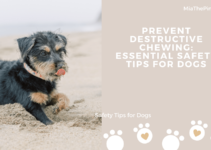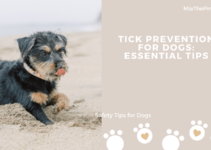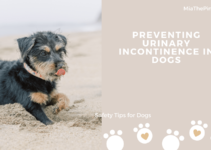Introduction to food allergies in dogs
Food allergies in dogs are becoming increasingly common and can cause a range of health issues. Just like humans, dogs can develop allergies to certain foods, leading to discomfort and potential complications. It is essential for dog owners to understand the symptoms, common allergens, and safety tips to ensure their canine companion’s well-being.
Common symptoms of food allergies in dogs
Recognizing the signs of food allergies in dogs is crucial for timely intervention. Symptoms may vary from mild to severe and can include itching, skin rashes, gastrointestinal disturbances, chronic ear infections, and even respiratory issues. If your dog exhibits any of these symptoms after consuming certain foods, it is important to consult a veterinarian for a proper diagnosis.
Identifying common food allergens for dogs
Several food items are known to trigger allergies in dogs. Common allergens include beef, chicken, dairy products, eggs, soy, wheat, and certain grains. However, each dog may have unique sensitivities, so it is important to identify specific allergens through elimination diets or allergy tests recommended by a veterinarian.
Essential safety tips for managing food allergies in dogs
Managing food allergies in dogs requires careful attention and a few essential safety measures. Firstly, it is important to read ingredient labels carefully and avoid feeding your dog foods that contain known allergens. Additionally, keeping your dog away from table scraps and human food can help prevent accidental exposure to allergens. Regularly cleaning food and water bowls, as well as avoiding cross-contamination during meal preparation, are also vital steps in managing food allergies.
Creating a safe and balanced diet for dogs with food allergies
When it comes to dogs with food allergies, a safe and balanced diet is crucial for their overall health. Working closely with a veterinarian or a veterinary nutritionist can help create a customized diet plan that eliminates allergens while providing necessary nutrients. This may involve transitioning to hypoallergenic commercial diets or preparing homemade meals using carefully selected ingredients.
Understanding the importance of regular vet check-ups for dogs with food allergies
Veterinary check-ups are essential for dogs with food allergies to ensure their health and well-being. Regular visits allow the veterinarian to monitor the dog’s condition, assess the effectiveness of the dietary plan, and make any necessary adjustments. Additionally, veterinarians can provide guidance on managing allergies and recommend appropriate medications or supplements to alleviate symptoms and improve the dog’s quality of life.
In conclusion, understanding food allergies in dogs is crucial for their overall health and well-being. By recognizing the symptoms, identifying common allergens, implementing safety measures, and working closely with a veterinarian, dog owners can effectively manage food allergies and provide their furry friends with a safe and balanced diet for optimal canine health.
FAQs
What are the common symptoms of food allergies in dogs?
The common symptoms of food allergies in dogs include itching, skin rashes, gastrointestinal disturbances, chronic ear infections, and respiratory issues. If your dog exhibits any of these symptoms after consuming certain foods, it is important to consult a veterinarian for a proper diagnosis.
What are some common food allergens for dogs?
Common food allergens for dogs include beef, chicken, dairy products, eggs, soy, wheat, and certain grains. However, each dog may have unique sensitivities, so it is important to identify specific allergens through elimination diets or allergy tests recommended by a veterinarian.
What are some essential safety tips for managing food allergies in dogs?
Some essential safety tips for managing food allergies in dogs include reading ingredient labels carefully, avoiding feeding your dog foods that contain known allergens, keeping your dog away from table scraps and human food, regularly cleaning food and water bowls, and avoiding cross-contamination during meal preparation.
How can a safe and balanced diet be created for dogs with food allergies?
A safe and balanced diet for dogs with food allergies can be created by working closely with a veterinarian or a veterinary nutritionist. They can help create a customized diet plan that eliminates allergens while providing necessary nutrients. This may involve transitioning to hypoallergenic commercial diets or preparing homemade meals using carefully selected ingredients.
Why are regular vet check-ups important for dogs with food allergies?
Regular vet check-ups are important for dogs with food allergies to ensure their health and well-being. Veterinarians can monitor the dog’s condition, assess the effectiveness of the dietary plan, and make any necessary adjustments. They can also provide guidance on managing allergies and recommend appropriate medications or supplements to alleviate symptoms and improve the dog’s quality of life.



